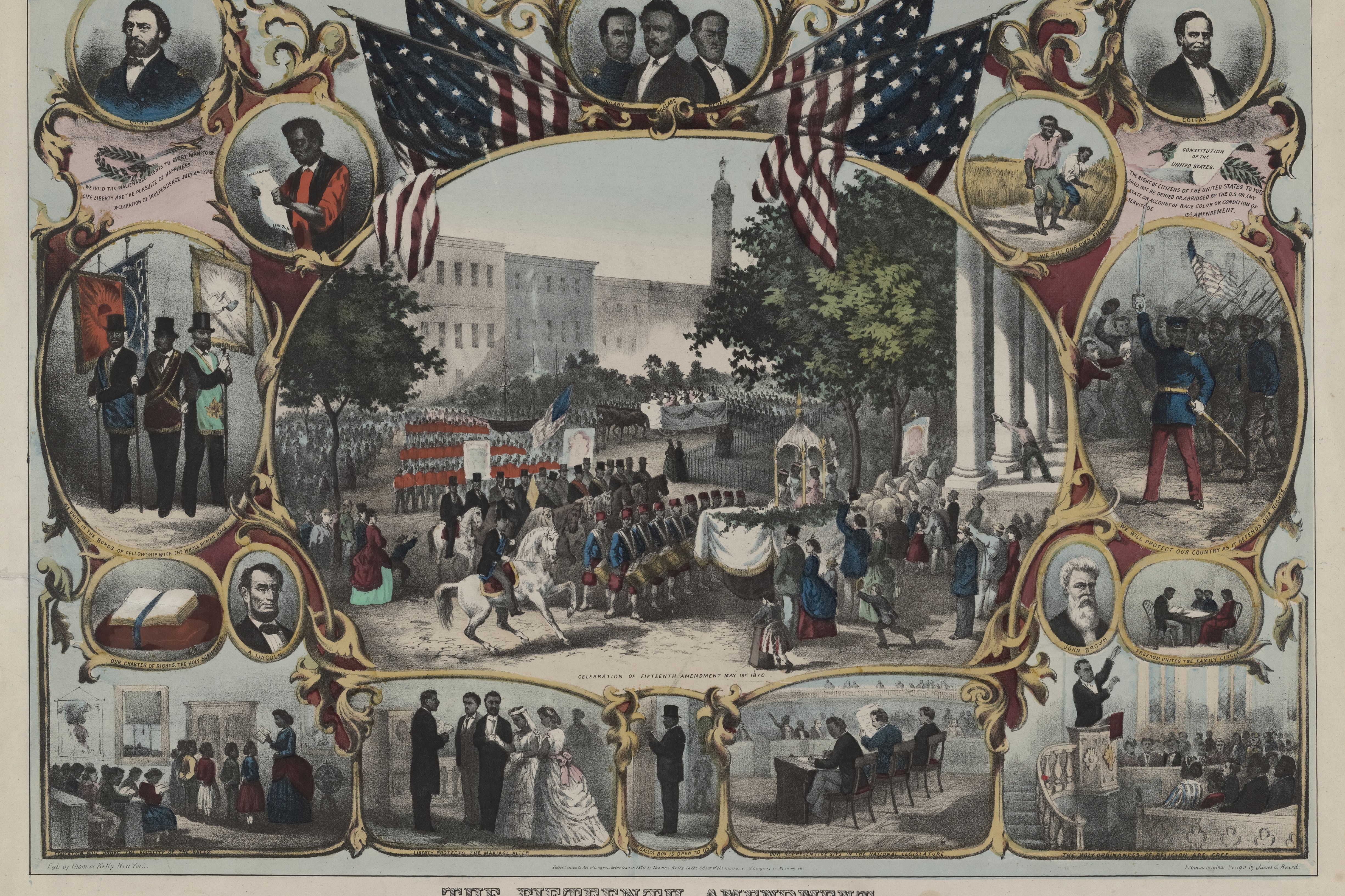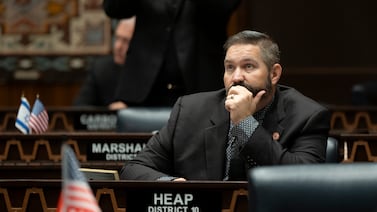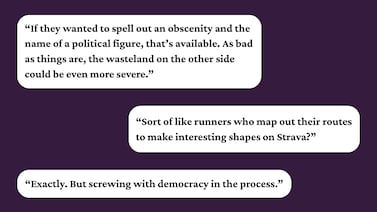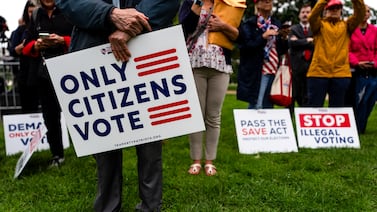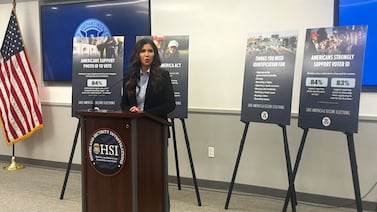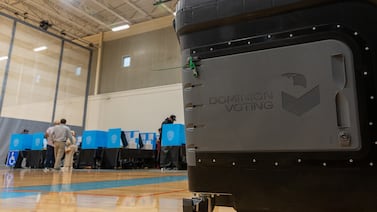Votebeat is a nonprofit news organization reporting on voting access and election administration across the U.S.
This news analysis was originally distributed in Votebeat’s free weekly newsletter. Sign up to get future editions, including the latest reporting from Votebeat bureaus and curated news from other publications, delivered to your inbox every Saturday.
Earlier this month, a group of Republican state lawmakers in Michigan sent a letter asking the U.S. Justice Department to “deploy official election monitors and provide comprehensive oversight for Michigan’s 2026 primary and general elections.”
Besides election monitors, which the Justice Department for years has deployed around the country to observe elections, the letter isn’t clear on what the Republican lawmakers mean by “comprehensive oversight,” or exactly what legal authority they believe would allow such an intervention. In interviews with Votebeat Michigan reporter Hayley Harding, two of the letter’s signatories did not go into specifics about what they were envisioning; you can read our full report on the letter here.
President Donald Trump and his allies have repeatedly pushed for more federal oversight of elections. In March, he issued a sweeping executive order that would overhaul the way elections are administered in many states, though federal courts have since blocked many of its provisions on the grounds that the Constitution doesn’t grant him such authority. His administration is appealing at least some of those decisions.
In August, Trump asserted in a social media post that “the States are merely an ‘agent’ for the Federal Government in counting and tabulating the votes” and “must do what the Federal Government, as represented by the President of the United States, tells them, FOR THE GOOD OF OUR COUNTRY, to do.” White House press secretary Karoline Leavitt earlier this month said the administration is working on a second executive order on elections. Some conservative allies have suggested Trump could assert emergency powers; many experts have said he cannot.
Historical precedents for such federal oversight or authority aren’t easy to come by. Alexander Keyssar, a professor of history and social policy at the Harvard Kennedy School and the author of “The Right to Vote: The Contested History of Democracy in the United States,” could only think of a few times — such as during Reconstruction or after the passage of the Voting Rights Act — when the federal government asserted authority to step in and administer an election.
Keyssar (who notes that Michigan Secretary of State Jocelyn Benson was once his student) told Votebeat there was almost no federal involvement in elections before the Civil War and the Reconstruction Amendments to the Constitution. They included the 15th Amendment, which said the right of citizens to vote “shall not be denied or abridged by the United States or by any State on account of race, color, or previous condition of servitude.”
Congress passed the Enforcement Acts to protect those rights, though Keyssar in his book describes their passage as Congress “stretching the limits of its constitutional powers.” For a few years, Keyssar notes, the federal government was actively intervening to protect the rights of Black voters in the former Confederate states against entities such as the Ku Klux Klan.
Federal enthusiasm for such enforcement dwindled after that. Big swaths of the Enforcement Acts were either modified or repealed over the years, and the federal government didn’t do much more about elections until the Civil Rights Movement, Keyssar said. In 1965, Congress passed the Voting Rights Act — the subtitle of which, Keyssar points out, is “an act to enforce the fifteenth amendment.”
However, some parts of the Enforcement Acts are still on the books. Joseph Nunn, a counsel for the Brennan Center’s Liberty and National Security Program who focuses on issues surrounding the domestic activities of the U.S. military, said that includes a provision of what is currently known as the Insurrection Act.
The provision, designed for civil rights enforcement, allows the president in some circumstances to federalize the National Guard and deploy it, or the active-duty armed forces, in a state where a group of people are being deprived of a constitutional right that state authorities are either unable or unwilling to protect, he said.
The provision was used by President Ulysses S. Grant during Reconstruction, Nunn said, and a handful of times during the Civil Rights Movement, including the Little Rock, Arkansas, school integration crisis, but not since that period. Nunn said he believes the Insurrection Act grants dangerously broad powers but wouldn’t allow a president to take over an election.
“The question would be what legal authority does the president have to unilaterally go in and seize control over an election,” he said, adding, “That’s not something the president can do.”
Carrie Levine is Votebeat’s editor-in-chief and is based in Washington, D.C. Contact Carrie at clevine@votebeat.org.

